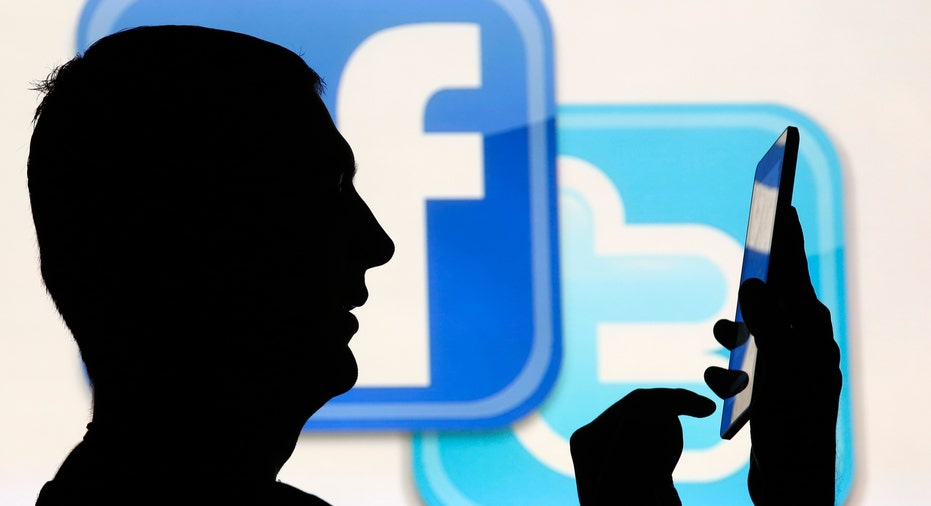Why CEOs Don’t Use Social Media

Everywhere you look there are surveys and articles that say social media is the best way for executives to engage and communicate with their stakeholders – from customers and partners to employees and investors.
So why aren’t business leaders getting the message?
The vast majority of Fortune 500 CEOs don’t use social networks and, of those that do, they’re mostly on LinkedIn (NYSE:LNKD), which sort of makes sense considering it’s a business network. Very few use Facebook (NASDAQ:FB), Twitter (NYSE:TWTR), or Google (NASDAQ:GOOG) Plus.
Which begs the question: in an increasingly connected world, why are top executives so disconnected?
All it takes is a little research to dig up all sorts of articles, reports, and even a few books acclaiming the many benefits of executives being open and connected online. Lots of commentators and pundits say CEOs and business leaders are hurting their companies and their brands by not being more active on social media sites.
I’m not one of them, and I’ll tell you why.
For one thing, the business case isn’t credible. That’s right, I said it. I committed social media heresy. Feel free to blast me on Twitter. Still, everything I’ve read on the subject is anecdotal and inconclusive. Contrary to popular groupthink in the social media collective, followers and page views don’t automatically translate to return on investment.
Maybe that sort of leap of faith is good enough for all the self-interested companies that do the surveys and the opinion leaders that write the articles, but it isn’t good enough for me and I doubt if it’s good enough for someone who makes critical business decisions on a daily basis.
In the meantime, executives have better things to do such as run their companies, make great products that beat the competition, make money, and negotiate with big customers that, oddly enough, also don’t waste their precious time posting on Facebook. You know, that sort of thing.
Nevertheless, even hardened and disciplined corporate bigwigs will eventually succumb to their hordes of PR, HR and IR professionals that insist the world will come to an end if they don’t share their wisdom on LinkedIn or engage customers and employees on Twitter.
But before they actually pull the trigger and start banging on the keyboard, I can only hope these seasoned veterans, who have no doubt seen the law of unintended consequences in action, would ask their communications pros what should be an obvious question, “What’s the downside risk?”
Truth is, more powerful people have shot themselves in the foot by shooting off their big mouths and saying what they shouldn’t than any other method of self-destruction. Contrary to popular doctrine, more communication is not necessarily better communication. It just increases the chances of doing more harm than good.
Not that it’s tricky to walk that ultrafine line between political correctness and putting just the wrong emphasis on the wrong word and offending some activist group that then decides to use your following against you in a social media campaign to boycott your products get all your advertisers to jump ship.
With the whole World Wide Web watching and there being no real way to take it back once Google crawls and indexes every blessed tweet or post, C-level executives of public companies had better be sure that every word of every tweet is reviewed, edited, scrubbed clean, and approved by their entire staff.
In which case, aren’t we right back to where we started before this whole social media thing began, managing and orchestrating the top guy’s communications? Where’s the fun in that? Where’s the transparency, the openness, the engagement? More importantly, what’s the point?
And let’s not forget, there’s another very good reason why top executives have so meticulously and ruthlessly managed every moment of their precious time since the beginning of time. Because they have no time. No time to spare. No time to waste. No time for anything except what really matters.
There may be a 4-hour workweek for the social media entrepreneurs that call themselves CEOs while blogging in their pajamas, but for the real deal, if it’s a choice between adding to an 80-hour workweek or spending a few hours with the family, that’s got to be a no-brainer – if you want to keep your family, that is.
For the record, I’m not saying that companies shouldn’t invest in social media as part of their overall communications and customer support strategy. Of course they should. I’m also not saying that companies don’t benefit from some of their top executives being thought leaders and accessible to the media, whatever form their media strategy takes.
I’m simply highlighting some very good reasons why CEOs and business leaders might resist the increasingly loud and insistent drumbeat to tweet, post, share, link, and update … like everyone else. (Yes, that was the final reason).



















